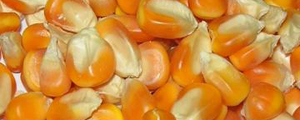
Despite indications that the demand for maize will double by 2050, the country’s farmers have gradually abandoned growing the staple crop to concentrate on cash crops like tobacco, leaving the country vulnerable to serious food shortages.
Report by Michelle Chifamba
Over the years, Zimbabwe’s fortunes have shifted from being the proud breadbasket of Southern Africa, to becoming a basket case as the country now relies on food aid and maize imports from its erstwhile beneficiaries like Malawi and Zambia.
According to recent research, this year alone, an estimated 1,6 million people are said to be in urgent need of food aid following a poor rainy season.
Effects of the erratic rainfall patterns experienced during the 2012/2013 farming season have plunged peasant farmers in Hwange District into serious problems as food shortages loom.
Since most of the crops were affected by the late rainfall, floods, hailstorms and a dry spell that followed the erratic rains, most of the subsistence farmers could only harvest a little grain which would not stretch to the next season.
“We have now resorted to eating wild fruits like the baobab which we eat during the day and save the little mealie meal we have for supper. The situation here is really bad and it is our hope that government intervenes as early as possible to curb the hunger which has become prevalent in this region,” said Chief Mungoshi of Mabale Village in Hwange.
Villagers in Wedza have also been reported to have resorted to trading their small herds of cattle for grain.
- Chamisa under fire over US$120K donation
- Mavhunga puts DeMbare into Chibuku quarterfinals
- Pension funds bet on Cabora Bassa oilfields
- Councils defy govt fire tender directive
Keep Reading
Ziyambe South Ward Councillor Godfrey Chitsaka confirmed that villagers had become so desperate that they were now engaging in barter trade to survive.
“In desperate plight to arrest the hunger problem in this region, villagers have fallen prey to maize dealers who come from various parts of the country especially Harare to exchange their beasts for the much-needed staple grain. Every beast is exchanged for 20 bags of maize,” said Councillor Chitsaka.
Statistics show that while tobacco farming is boosting export earnings and rewarding proponents of the chaotic land reform, food production has on the other hand plunged.
In its aim to attain the Millennium Development Goals, the government recently renewed its commitment to food security by launching the Food and Nutrition Policy document which is aimed at addressing challenges brought about by the recurrent droughts that have turned the economy upside down and the aim of the policy is to redress the situation.
The 2006 Food Security in Africa Abuja Summit of African governments identified maize as a strategic and poverty reduction crop. The summit implored the continent to promote maize production in order to achieve self- sufficiency by 2015.
However, Africa is a net importer of maize and according to the Forum for Agriculture Research in Africa, it is costing Zimbabwe. “Despite its vast tracts of land, Zimbabwe has become a net importer of maize from neighbouring countries.
Instead of encouraging farmers to produce maize, it appears Zimbabwe is going the opposite direction. Most farmers are taking up tobacco production on a large scale crippling food security in the country,” read part of the Agriculture Research in Africa report.
Economists regard the current food insecurity as a threat to the nation especially during this time when most of the country’s population is living way below the poverty datum line. They urged government to take the plight of the people seriously.
“The case of Zimbabwe is a tragedy. Although most developing are at risk of food shortages largely as a result of a declining investment in agriculture, climate change and lack of technology to predict weather patterns, for a country which was once the breadbasket of the region it is embarrassing, to go to neighboring countries with a begging bowl in the early periods of the harvesting season. Since the Food and Nutrition policy document has been launched, government must be taken to task to turn theory into practice and make sure that food security is restored,” said Lisbon Mhondiwa, a Harare-based economist.
Commercial Farmers’ Union president Charles Taffs is on record saying that much of the problem which has led to the decline in maize production can be linked to lack of funding for most of the farmers.
“There has been a serious decline in food security at the household level. We have to re-establish property rights so as to re-establish proper funding in agriculture because once tobacco prices fall, all the farmers will be stranded,” said Taffs.
According to agricultural analysts, though there are numerous reasons which have led to the shrinking of the maize production per hector, the absence of a clear policy as to how the country is supposed to ensure food security is the chief contributor to the tobacco production euphoria.











